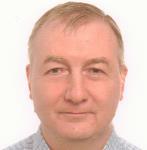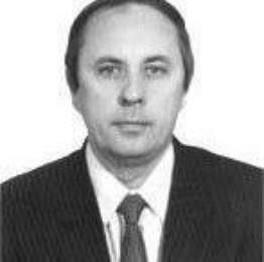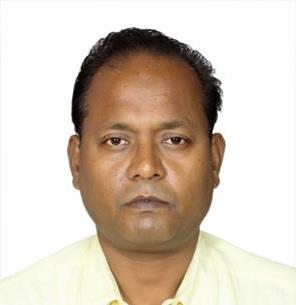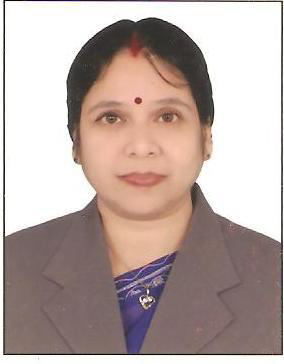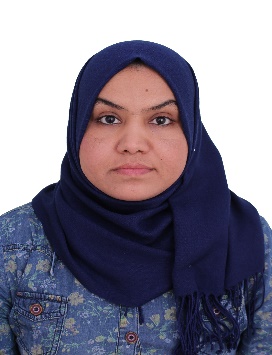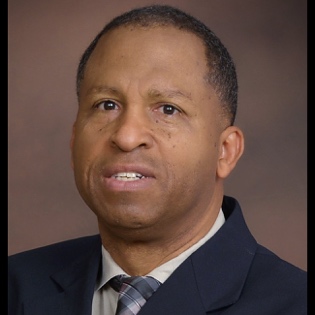About Conference
8th Annual Summit on Satellite and Space Communication Technology
October 27–28, 2026 | Paris, France
Satellite and space communication systems are revolutionizing global connectivity, enabling advancements in remote sensing, Earth observation, navigation, and deep space exploration. This summit will spotlight cutting-edge technologies including low Earth orbit (LEO) constellations, 5G/6G satellite integration, AI-powered satellite systems, and interplanetary communication networks.
Expanding Horizons: Collaborative Advances in Satellite and Space Communication
The conference will cover a broad spectrum of topics such as satellite payload design, signal processing, ground station technology, space policy, cybersecurity, and commercial space applications. Attendees will benefit from keynote speeches, panel sessions, interactive workshops, and networking opportunities that promote interdisciplinary collaboration and innovation.
By uniting voices from academia, government, space agencies, and the private sector, the summit aims to build strategic partnerships and chart a path forward for the next generation of satellite and communication systems.
Join us in Paris for two impactful days of discovery, dialogue, and development in space technology.
Scientific sessions /tracks
The Next-Generation Satellite Systems and Architectures track will explore the latest innovations shaping the future of satellite design, deployment, and functionality. As global demand for seamless communication, navigation, and Earth observation grows, satellite systems are evolving rapidly—from large geostationary platforms to agile, intelligent satellite constellations in low Earth orbit (LEO).
-
Evolution of LEO, MEO, and GEO satellite constellations
-
Miniaturized and modular satellite design (CubeSats, SmallSats)
-
On-orbit servicing and satellite lifecycle extension
-
Software-defined payloads and dynamic beamforming
Remote sensing is the science of collecting information about the Earth's surface without direct contact, typically using satellites, aircraft, or drones equipped with specialized sensors. These sensors detect and measure reflected or emitted energy—such as visible light, infrared, or radar signals—to analyze landscapes, monitor changes, and support decision-making. Remote sensing plays a vital role in various fields, including agriculture, environmental monitoring, disaster management, urban planning, and climate science. It allows for large-scale, timely, and repeated observations, making it essential for tracking natural resources, detecting changes over time, and responding to global challenges like deforestation, pollution, and climate change.
-
Principles of Remote Sensing
-
Types of Remote Sensing
-
Sensors and Platforms
-
Image Acquisition and Resolution
-
Applications in Agriculture
Satellite remote sensing data refers to information collected by sensors on satellites that observe the Earth’s surface and atmosphere without physical contact. This data is essential for monitoring environmental changes, managing natural disasters, supporting precision agriculture, and aiding urban planning. It also plays a key role in studying climate patterns, water resources, and forest cover. By providing large-scale, timely, and repeated observations, satellite remote sensing data enables informed decision-making and promotes sustainable development across various sectors.
-
Types of Remote Sensing (Passive vs. Active)
-
Satellite Sensors and Platforms (e.g., Landsat, Sentinel, MODIS)
-
Multispectral and Hyperspectral Imaging
-
Applications in Agriculture and Crop Monitoring
The 5G/6G Integration and Beyond track focuses on the convergence of satellite communication systems with next-generation terrestrial networks, shaping the future of truly global, seamless connectivity. As mobile networks evolve toward 6G, the role of non-terrestrial networks (NTNs)—including satellite systems—has become central in ensuring ubiquitous access, especially in remote, underserved, or mobility-challenged regions.
-
Role of satellites in enabling global 5G/6G coverage
-
Architecture of integrated terrestrial and non-terrestrial networks (NTN)
-
Direct-to-smartphone satellite connectivity and use cases
-
Low latency and high throughput satellite backhaul for mobile networks
-
Spectrum sharing and interference mitigation in hybrid systems
-
AI and edge computing in integrated 5G/6G satellite networks
The Inter-Satellite and Deep Space Communication track delves into the advanced communication systems that enable satellites to communicate directly with each other and with spacecraft operating far beyond Earth's orbit. As satellite constellations and deep space missions grow in scale and complexity, robust, high-capacity, and low-latency inter-satellite communication is becoming essential for mission success, autonomous coordination, and real-time data exchange.
-
Inter-satellite link (ISL) technologies: RF vs. optical
-
Crosslinking strategies for LEO and MEO satellite constellations
-
High-speed data transfer between satellites and ground stations
-
Free-space optical communication (FSO) and laser terminals
The Earth Observation and Remote Sensing Applications track focuses on how satellites are revolutionizing our ability to monitor, understand, and manage the Earth’s systems in real time. With the growing need for climate resilience, disaster management, and sustainable development, satellite-based Earth observation has become a cornerstone of environmental intelligence and global decision-making.
-
High-resolution optical, radar, and hyperspectral imaging systems
-
Applications in climate monitoring, deforestation, agriculture, and urban growth
-
Real-time disaster detection and emergency response
-
Satellite-based oceanography and atmospheric monitoring
The Ground Station Infrastructure and Network Optimization track explores the vital terrestrial backbone that supports satellite communication and data delivery. As satellite constellations grow in number and complexity—especially with the rise of LEO mega-constellations—the demand for scalable, flexible, and intelligent ground station systems is greater than ever.
-
Next-generation ground station design and automation
-
Software-defined ground systems and virtualization
-
Cloud-based satellite data acquisition and control (Ground Station as a Service – GSaaS)
-
Global ground network coordination for LEO/MEO/GEO satellites
As satellite systems become more interconnected, data-intensive, and commercially valuable, the challenges of cybersecurity and space traffic management (STM) have taken center stage. The Cybersecurity and Space Traffic Management track addresses the dual need to protect critical space infrastructure from cyber threats and to ensure safe, coordinated satellite operations in increasingly congested orbits.
-
Cybersecurity for satellite systems: risks, detection, and defense
-
Threats to TT&C systems, ground infrastructure, and data links
-
Satellite encryption, secure protocols, and authentication systems
-
Space situational awareness (SSA) and object tracking technologies
The Commercialization and Private Space Industry Involvement track focuses on the dynamic role of the private sector in shaping the future of satellite and space communication technologies. As the space industry transitions from government-led missions to private sector-driven innovation, a new era of agile, cost-effective, and scalable solutions is emerging—fueled by startups, commercial satellite operators, and global tech giants.
-
Emerging trends in commercial satellite communications and launch services
-
Business models in space: subscription-based, GSaaS (Ground Station as a Service), and satellite-as-a-service
-
Private investment, venture capital, and startup funding in space tech
-
The role of mega-constellations (e.g., Starlink, OneWeb) in global broadband
The AI, Automation, and Autonomous Space Operations track explores how artificial intelligence (AI), machine learning (ML), and automation technologies are revolutionizing the way satellites and space systems are designed, launched, and operated. As satellite constellations grow in scale and missions venture deeper into space, traditional manual control becomes inefficient ushering in the need for smart, self-reliant systems capable of making decisions in real time.
-
AI for autonomous satellite health monitoring and fault detection
-
Onboard machine learning for data processing and decision-making
-
Robotic systems for in-orbit servicing, refueling, and assembly
-
AI-assisted trajectory planning, collision avoidance, and station-keeping
The Global Collaboration and Space Policy track focuses on the critical role of international cooperation, governance, and regulatory frameworks in ensuring the responsible, sustainable, and equitable use of outer space. As satellite technology becomes central to global communications, navigation, security, and climate monitoring, the need for coordinated global policies and collaborative efforts has never been greater.
-
International treaties and space law (Outer Space Treaty, Artemis Accords, etc.)
-
Spectrum management and orbital slot coordination through ITU and regional bodies
-
Policies for space traffic management and long-term orbital sustainability
-
Governance of satellite constellations and mega-constellations
Quantum communication via satellite networks is an emerging and revolutionary approach to achieving ultra-secure, long-distance communication by leveraging the principles of quantum mechanics. This field combines quantum physics with advanced satellite technologies to overcome the limitations of terrestrial quantum networks.
Quantum communication uses quantum states—typically of photons—to encode, transmit, and decode information. A key feature is quantum entanglement, where particles remain interconnected such that the state of one instantly influences the other, regardless of distance. This forms the basis of Quantum Key Distribution (QKD), a method for secure communication that detects eavesdropping attempts.
-
Satellite-Based Entanglement Distribution
-
Quantum Key Distribution (QKD) via Satellites
-
Ground Station Infrastructure for Quantum Links
As humanity ventures deeper into space—toward the Moon, Mars, and beyond—traditional internet protocols like TCP/IP fall short due to vast distances, signal delays, and disruptions. To overcome these limitations, engineers and scientists have developed a new architecture known as the Interplanetary Internet, built on Delay-Tolerant Networking (DTN) principles.
-
What is Delay-Tolerant Networking (DTN)
-
DTN Protocol Stack
-
Applications of DTN and Interplanetary Internet
Photonics and optical satellite communication systems represent the cutting edge of high-speed, high-capacity space communication technologies. These systems use light—typically laser beams—instead of traditional radio waves to transmit data between satellites, spacecraft, and ground stations.
-
Free-space optical communication (FSO) for high-capacity links
-
Space-to-ground laser communication
-
Atmospheric compensation and precision pointing technologies
Space-Based AI/ML for Earth Intelligence and Autonomous Decision-Making refers to the integration of artificial intelligence (AI) and machine learning (ML) technologies aboard satellites and space systems to enhance real-time data analysis, interpretation, and autonomous actions. These systems process vast volumes of Earth observation data—such as climate patterns, natural disasters, urban development, and agricultural changes—directly in orbit, reducing reliance on ground-based analysis and minimizing data latency. AI/ML enables satellites to autonomously detect anomalies, classify terrain, monitor environmental changes, and even re-task sensors based on emerging situations. This capability supports faster, smarter decision-making for applications ranging from disaster response and defense to climate monitoring and resource management. Ultimately, space-based AI/ML systems are transforming Earth intelligence into a more adaptive, responsive, and predictive ecosystem.
-
Real-time processing of Earth observation data
-
AI-enabled disaster detection and climate analytics
-
Neural networks and reinforcement learning in space-based platforms
Orbital Sustainability and In-Orbit Servicing (IOS) are critical components of modern space operations aimed at ensuring the long-term usability of Earth's orbital environment. Orbital sustainability involves responsible practices to prevent space debris generation, minimize collision risks, and maintain the safety and functionality of active satellites. In-Orbit Servicing (IOS) complements this by enabling spacecraft to be repaired, refueled, upgraded, or repositioned while still in orbit, thereby extending their operational lifespan and reducing the need for replacement launches. Together, these strategies promote efficient use of space assets, reduce environmental impact in space, and support a more sustainable and economically viable space ecosystem for future generations.
-
Autonomous rendezvous and docking technologies
-
On-orbit satellite refueling and servicing missions
-
AI for space traffic coordination and debris avoidance
Advanced RF and Microwave Engineering in Space Systems plays a pivotal role in enabling reliable communication, navigation, and sensing capabilities for both satellite and deep space missions. This field involves the design and optimization of high-frequency components such as antennas, transmitters, receivers, filters, and amplifiers that operate in the radio frequency (RF) and microwave spectrum. These systems ensure high-speed data transmission, signal clarity, and robustness against interference in the harsh space environment. Applications include satellite communication links, radar systems for Earth observation, inter-satellite links, and telemetry tracking. With advancements in miniaturization, beamforming, and phased array technology, RF and microwave engineering continues to enhance the efficiency, bandwidth, and agility of space systems, supporting more complex missions and expanding the capabilities of space-based infrastructure.
-
Phased array antennas and beam steering in LEO/GEO satellites
-
Miniaturized RF subsystems for CubeSats
-
High-frequency (Ka/Q/V-band) payload design and challenges
High-Capacity Satellite Internet and Global Broadband Infrastructure represent a transformative leap in global connectivity, aiming to deliver fast, reliable internet access to even the most remote and underserved regions of the world. By deploying constellations of low Earth orbit (LEO), medium Earth orbit (MEO), and geostationary (GEO) satellites, companies and space agencies are creating a resilient, high-throughput network capable of supporting broadband-level data speeds. These systems leverage advanced technologies such as phased array antennas, optical inter-satellite links, and dynamic spectrum allocation to minimize latency and maximize coverage. This satellite-driven infrastructure is crucial for bridging the digital divide, enabling real-time communication, supporting disaster response, enhancing remote education and healthcare, and fostering economic development across the globe.
-
Ultra-high-throughput satellite (UHTS) systems
-
Integrating satellite internet into underserved regions
-
Scalability, latency, and network architecture challenges
Policy, Regulations, and Space Law form the legal and governance framework that ensures responsible and peaceful use of outer space. This domain encompasses international treaties, national regulations, and emerging guidelines that address issues such as space traffic management, satellite licensing, orbital debris mitigation, frequency allocation, and liability for damages. Key instruments include the Outer Space Treaty (1967), the Liability Convention, and national space laws tailored to commercial and governmental activities. As the space sector becomes increasingly commercialized and congested, clear policies and enforceable regulations are vital to prevent conflicts, ensure equitable access to orbital resources, and promote long-term sustainability. Evolving space law also addresses new challenges like space mining, mega-constellations, and military use, aiming to balance innovation with global cooperation and security.
-
International frameworks for space communication
-
Spectrum allocation, orbital slot management, and debris mitigation
-
Ethical use of satellite data and commercial space governance

